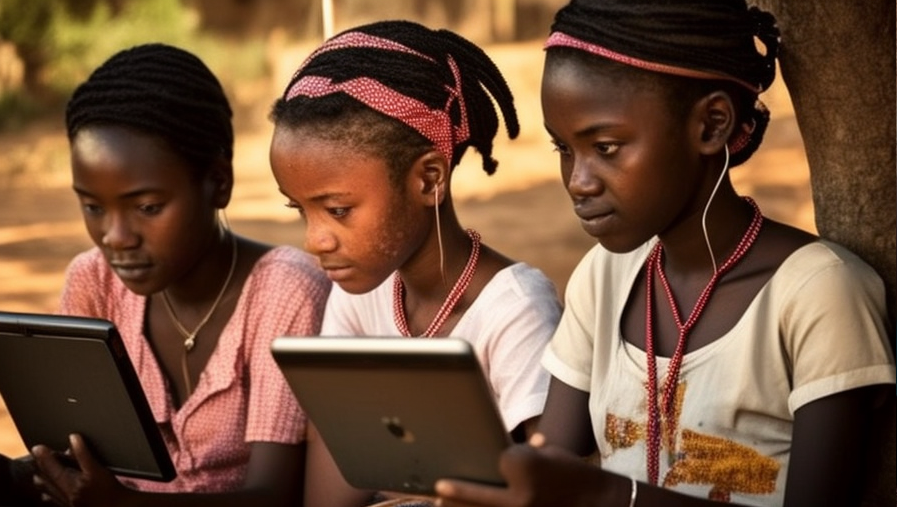
A new report by UNICEF reveals that around 90% of adolescent girls and young women do not use the internet in low-income countries, while their male counterparts are twice as likely to be online.
The report highlights the gender digital divide among young people aged 15-24 in mostly low, lower-middle, and some middle-income economies. It finds that girls are being left behind in an increasingly digital and connected world, and are the least likely to have the opportunities to develop the skills needed for 21st-century learning and employment.
The report calls on governments and partners to promote equal access to digital skills training and peer learning, protect girls’ safety online, and promote their access to internships and job shadowing in the digital and STEM world.
The report, titled “Bridging the Digital Divide: Challenges and an Urgent Call for Action for Equitable Digital Skills Development,” emphasizes that closing the gender digital divide between girls and boys is about more than just having access to the internet and technology. It’s also about empowering girls to become innovators, creators, and leaders. The report argues that if we want to tackle gender gaps in the labor market, particularly in STEM fields, we must start now by helping young people, especially girls, gain digital skills.
The report points out that advancing access to the internet is important, but it isn’t enough to boost digital skills training. In most countries analyzed, the number of young people with access to the internet at home is much higher than the number of youths who have obtained digital skills. Girls are the least likely to have the opportunities to develop the skills needed for 21st-century learning and employment.
The report also suggests that educational and family environments play a critical role in the gender digital divide. For instance, even within the same household, girls are far less likely than boys to access, or be able to make full use of, the internet and digital technologies. Across 41 countries and territories included in the analysis, households are much more likely to provide mobile phones for boys than girls.
To break through the barriers, UNICEF recommends providing early exposure and access to technology, digital, and life skills training. Such training should help neutralize the impact of harmful gender stereotypes, especially within families, and online violence. The report calls on governments and partners to promote equal access to digital skills training and peer learning, protect girls’ safety online, and promote their access to internships and job shadowing in the digital and STEM world.

